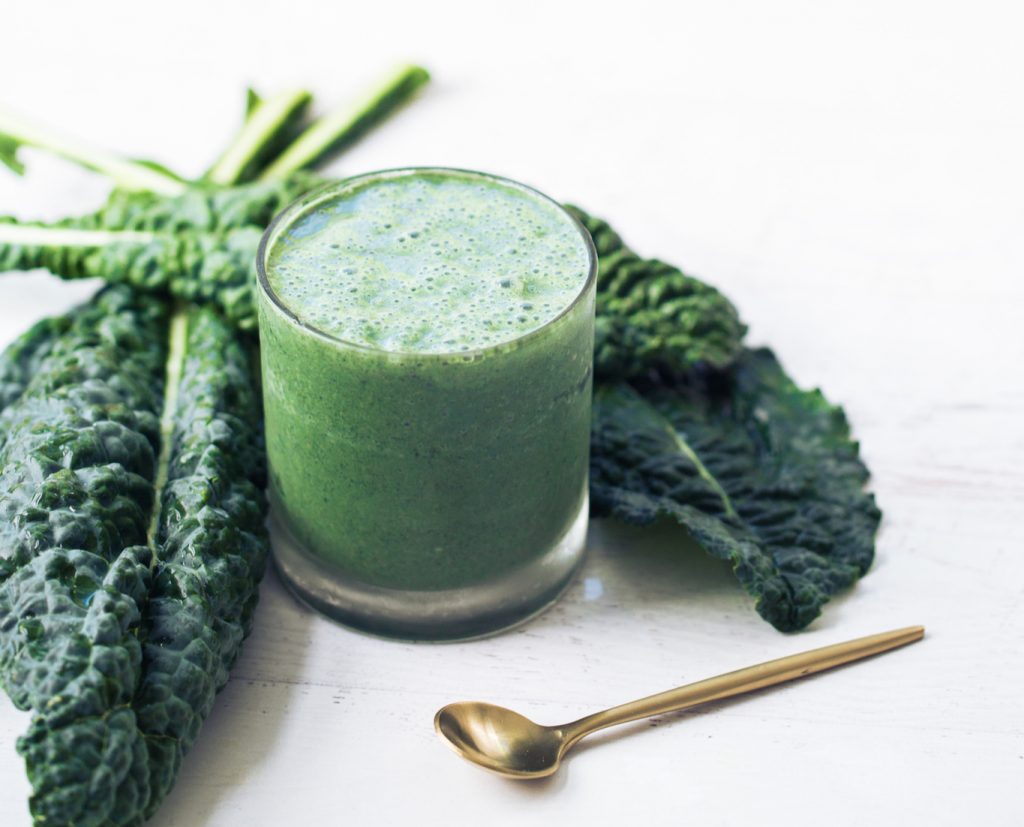The Problem with Your Prenatal Vitamin
April 23, 2019 By Sarah White4 Comments

I get it, choosing a prenatal vitamin can be complicated and sometimes it’s easiest to just grab the first thing we see at Costco, or accept that prescription from your MD. The world of supplements is understandably difficult to navigate. Between the different forms of vitamins, varying degrees of manufacturing quality, doses and additives, it’s almost as if you need to be a doctor (the kind with extensive training in nutrition and supplement prescribing) to navigate it! I’ve seen thousands of fertility patients, have over 15 years experience in the natural health field and a naturopathic medical degree and it’s even taken me sometime to figure out which prenatal multis are best for my patients. While the right forms and doses of vitamins can be an important part of your fertility and pregnancy, the wrong types of vitamins may actually be making it more difficult for you to get pregnant. I’m writing this post for you today because I’ve seen more than a few fertility cases where, after multiple failed rounds of IVF, couples were finally able to get pregnant by simply upgrading their prenatal.
These are the 4 main criteria that I analyze when deciding whether or not a prenatal vitamin or supplement is good enough for my patients:
Nutrient levels
How much of each individual vitamin & mineral is available in a daily dose? Are there enough of these nutrients to reach evidence-based therapeutic doses? Or did the supplement company simply throw a little in there so they could add that vitamin or mineral to their label, assuming the consumer didn’t know any better?
In my extensive analysis of the commonly prescribed / purchased prenatal vitamins, I found that there is an enormous difference in the amount of basic nutrients provided in each serving. For example, a few of the most common prenatal vitamins contained only 20 – 30mcg chromium. Chromium is extremely important in regulating blood sugar balance and pregnant women are especially vulnerable to blood sugar dysregulation and diabetes. The prenatals I prescribe in my practice have between 100 – 150mcg chromium, which is the evidence based dose needed to achieve therapeutic benefits. B vitamin doses also vary greatly between vitamin brands. There’s only 1.9mg vitamin B6 in a popular drug store brand, while my favourite professional grade supplement has 50mg per daily serving. It’s important to maintain adequate B6 levels in fertility and pregnancy because it’s essential to the development and functioning of your future baby’s nervous system. A dose of 50mg vitamin B6 is also a safe and effective treatment for preventing nausea of pregnancy.

Form of folate
Does your prenatal multi include folic acid, or the more bioavailable methylated folate? This is one of the most important things to look at when picking a prenatal vitamin and so many supplement brands get it all wrong.
Research estimates that up to 65% of women have a defect in an enzyme called MTHFR, which is essential in the conversion and absorption of folate. This means is that synthetic ‘folic acid’ found in most prenatal vitamins may not be absorbed well for most women, and may even be interfering with your ability to conceive. There are multiple studies showing that synthetic folic acid remains unmetabolized in the blood stream following the consumption of supplements or fortified foods. The form of folate that can easily enter your methylation pathway is called tetrahydrofolate (5-THF), and it’s only available in a small number of prenatal vitamins.
We began fortifying foods (specifically grains) with synthetic folic acid and giving high doses to pregnant women in the 90s to reduce the number of neural tube defects (NTDs). While this practice has helped almost eliminate the risk of NTDs, it’s unfortunately also been correlated with increased risk of cancer. Additionally, new research is pointing to synthetic folic acid supplementation as a possible reason for the dramatically increased rates of autism. While folates from food and the methylated versions found in high-quality natural supplements are fundamental to all aspects of fetal development, researchers believe that high levels of synthetic folic impairs methylation of DNA during times of rapid cell division, such as in prenatal development. This is especially worrisome in the group of women that have the MTHFR defect (and remember this is over 65% of you!) which makes it even more difficult to effectively convert the synthetic folic acid to the proper methylated form.
It’s disappointing that doctors are prescribing high dose folic acid prenatals to women without first checking for this important gene mutation. One specific multi commonly prescribed by medical doctors to women over 35 has 5000mcg (!!!) synthetic folic acid, which is extremely scary given the research highlighting the issues with folic acid supplementation.
In addition to switching to a methylated folic acid I also recommend that my fertility patients eat more naturally occurring folate from food. Excellent sources of dietary folate include leafy green vegetables like romaine lettuce, spinach, parsley, collard greens and kale, as well as asparagus, broccoli, cauliflower, beets, lentils and organic liver.

Quality
If you compare the labels of prenatal vitamins you’ll quickly see that there is a lot of discrepancy between the various forms of vitamins and nutrients listed. All vitamins are not created equal, and certain forms of nutrients are used simply because they’re less expensive resulting in larger profit margins for the supplement company. Are the vitamins and minerals in your multi found in their most absorbable form? Are these vitamins being 3rd party tested for quality and consistency? Here are a few important things to look out for when comparing vitamin brands:
- 3rd party testing: High quality supplements are tested frequently by outside labs to ensure potency and consistency. Call the number located on the back of your supplement bottle, if they can’t provide you a 3rd party certificate of analysis from the past 3 months then they’re not doing their due diligence in insuring optimal quality for their customers.
- Calcium – carbonate vs. citrate: Calcium carbonate is found in most pharmacy prenatal vitamins. This form of calcium is alkaline, which is at odds with the acidic environment found in your digestive system, and therefore requires significant stomach acid to digest and absorb. The calcium citrate version found in the naturopathic lines is more easily broken down and absorbed by your digestive system.
- Minerals – oxide vs. citrate: The oxide forms of minerals have much lower absorption rates. They’re also difficult to digest and irritating to the digestive tract. If your multivitamin is giving you stomach pains and making you nauseous it’s likely due to it’s cheap oxide forms of minerals.
- Vitamin B12 – cyanocobalamin vs. methyl/hydroxycobalamin: Cyanocobalamin is a synthetic form of vitamin B12 that releases a cyanide molecule when absorbed. Yes, you read that correctly, cyanide … that extremely toxic chemical that should not be ingested daily via your multi vitamins. It’s the form found in most multivitamins and injected at your MD’s office as it’s significantly cheaper than the more bioavailable forms found in higher quality multis (you get what you pay for people!). My preference is to give patients methylcobalamin; this is the methylated version which is more appropriate for the 65% of female patients with MTHFR defects, as discussed above.
Click on the link below to download the free Replete prenatal comparison chart:
Fillers + Additives:
My patients are often shocked when I bring up the ingredients on their current doctor-prescribed prenatal vitamin to show them a long list of chemicals and fillers. One of the most commonly prescribed prenatal vitamins contains the following additives: BHT, corn starch, FD&C red #40, gelatin, lactose, mineral oil, polysorbate 80, sodium lauryl sulfate, soybean oil, titanium dioxide, etc. Another popular doctor-prescribed vitamin contains: ammonium hydroxide, D&C Red #27, FD&C Blue #1, FD&C Blue #2, FD&C Red #40, FD&C Yellow #6, PEG 3350, polyvinyl alcohol, propylene glycol, shellac glaze, sodium lauryl sulfate, talc and titanium dioxide. Yikes!
Not only are these chemicals and additives are completely unnecessary in a vitamin they may also be harmful to your fertility and your future baby. Food colourings are linked to ADHD and allergies in children so it’s obviously a good idea to keep them away from your susceptible growing baby (who will absorb 10% of everything you put into your body while pregnant). BHT is a suspected human carcinogen & ammonium hydroxide can lead to shock, convulsions and pulmonary edema. A good prenatal vitamin will not contain any of these chemicals or fillers and will be packaged in a vegetable-based cellulose capsule.
If you’d like to discuss your own personalized fertility protocol you’re welcome to book in for an initial virtual consultation or contact me via my website for additional information.
References:
- http://journals.cambridge.org/action/displayAbstract?fromPage=online&aid=1343280
- https://www.ncbi.nlm.nih.gov/pubmed/17697404
- https://www.ncbi.nlm.nih.gov/pubmed/18038944
- https://www.ncbi.nlm.nih.gov/pubmed/19190501
- http://cebp.aacrjournals.org/content/16/7/1325.abstract
- http://jn.nutrition.org/content/136/1/189.short
- https://www.ncbi.nlm.nih.gov/pmc/articles/PMC5704156/
- https://davidsuzuki.org/queen-of-green/dirty-dozen-bha-bht/
This information is not intended as a substitute for the advice provided by your Naturopathic doctor or primary care physician. Do not use the information in this document for diagnosing or treating a health problem or disease. Always speak with your Naturopathic doctor before taking any medication or nutritional or herbal or using any treatment for a health problem. If you have or suspect that you have a medical problem, contact your health care provider promptly. Do not disregard professional medical advice or delay in seeking professional advice because of something you have read online.
COMMENTS
Leave a Reply
This site uses Akismet to reduce spam. Learn how your comment data is processed.
Mauren Meneses says
MAY 13, 2021 AT 8:15 AM
Hormonal issues and nutritional help
Reply